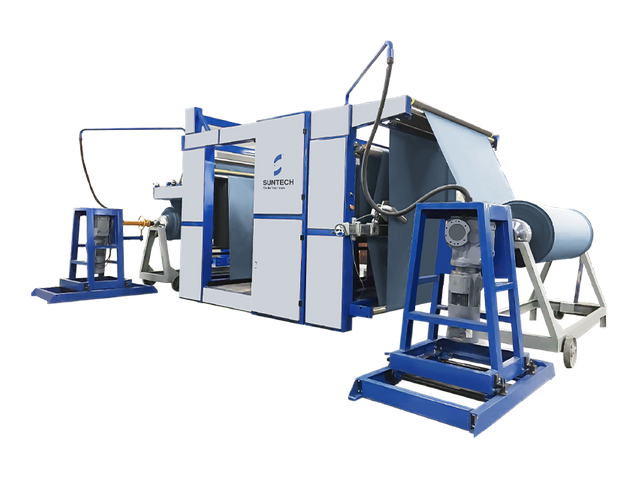The textile industry is a cornerstone of global manufacturing, and maintaining high standards of quality is paramount. One of the most effective ways to ensure this quality is through the use of fabric inspection machines. These machines offer numerous advantages that can significantly enhance the efficiency and reliability of textile production. In this article, we will explore the top benefits of using a fabric inspection machine in the textile industry.

Enhanced Quality Control
One of the primary benefits of using a fabric inspection machine is the enhancement of quality control. These machines are designed to detect a wide range of defects, such as tears, stains, and inconsistencies in the weave. By identifying these issues early in the production process, manufacturers can take corrective actions before the fabric is used in the final product. This not only ensures a higher quality end product but also reduces waste and saves costs.
Increased Efficiency
Fabric inspection machines significantly increase the efficiency of the inspection process. Manual inspection is time-consuming and prone to human error. In contrast, automated inspection machines can process large volumes of fabric quickly and accurately. This increased efficiency allows manufacturers to meet tight production schedules and reduce lead times, ultimately improving customer satisfaction.
Cost Savings
Another significant advantage of using fabric inspection machines is the potential for cost savings. By automating the inspection process, manufacturers can reduce labor costs associated with manual inspection. Additionally, the early detection of defects helps to minimize the costs associated with rework and waste. Over time, these savings can have a substantial impact on the bottom line.
Consistency and Reliability
Consistency is crucial in the textile industry, and fabric inspection machines provide a level of reliability that is difficult to achieve with manual inspection. These machines use advanced technology to ensure that every inch of fabric is inspected to the same high standard. This consistency helps to build trust with customers and maintain a strong reputation for quality.
Data Collection and Analysis
Modern fabric inspection machines are equipped with data collection and analysis capabilities. This feature allows manufacturers to gather valuable information about the types and frequencies of defects. By analyzing this data, manufacturers can identify patterns and trends, leading to insights that can improve production processes and reduce the occurrence of defects in the future.
Improved Safety
Manual inspection of fabric can be physically demanding and pose safety risks to workers. Fabric inspection machines help to mitigate these risks by automating the process. This not only improves the safety of the workplace but also allows workers to focus on more skilled tasks that add greater value to the production process.
Environmental Benefits
Reducing waste is not only cost-effective but also environmentally responsible. By detecting defects early, fabric inspection machines help to minimize the amount of fabric that is discarded. This contributes to more sustainable production practices and reduces the environmental impact of textile manufacturing.
In conclusion, the top benefits of using a fabric inspection machine in the textile industry are numerous and far-reaching. From enhanced quality control and increased efficiency to cost savings and improved safety, these machines offer a comprehensive solution to many of the challenges faced by textile manufacturers. By investing in fabric inspection technology, manufacturers can ensure that they remain competitive in a demanding and ever-evolving industry.








